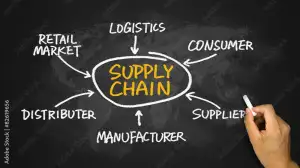In modern enterprises, supplier data is handled by multiple departments, and manipulated by siloed processes and disparate systems of governance. Within procurement, supply chain professionals are faced with the challenge of ingesting the enormous amount of data they have available to them.
We all have a great appetite for data, but it’s not always easy to “digest”.
Data often resides in various point solutions, with little to no consistency in how it is updated and evaluated for accuracy. This creates inconsistencies in the data structure that make it difficult to merge data from various sources. This means that reliable data that can be utilised with confidence will never be available in real-time.
I recently hosted an event where I was joined by Joseph Yacura from the International Association for Data Quality, Governance and Analytics to discuss this important topic.
You can watch the full event below:
As AI and data science are increasingly becoming recognised as the most revolutionary technologies of our times, I decided to put together the AI Case Studies Bible, a document that covers close to 30 industries. It is an extensive collection of exciting applications of AI and data science, spanning many different sectors and companies including the supply chain and logistics industry. It is free to access just simply register here.
Additionally, you can watch a short video on the supply chain and logistics industry below:

